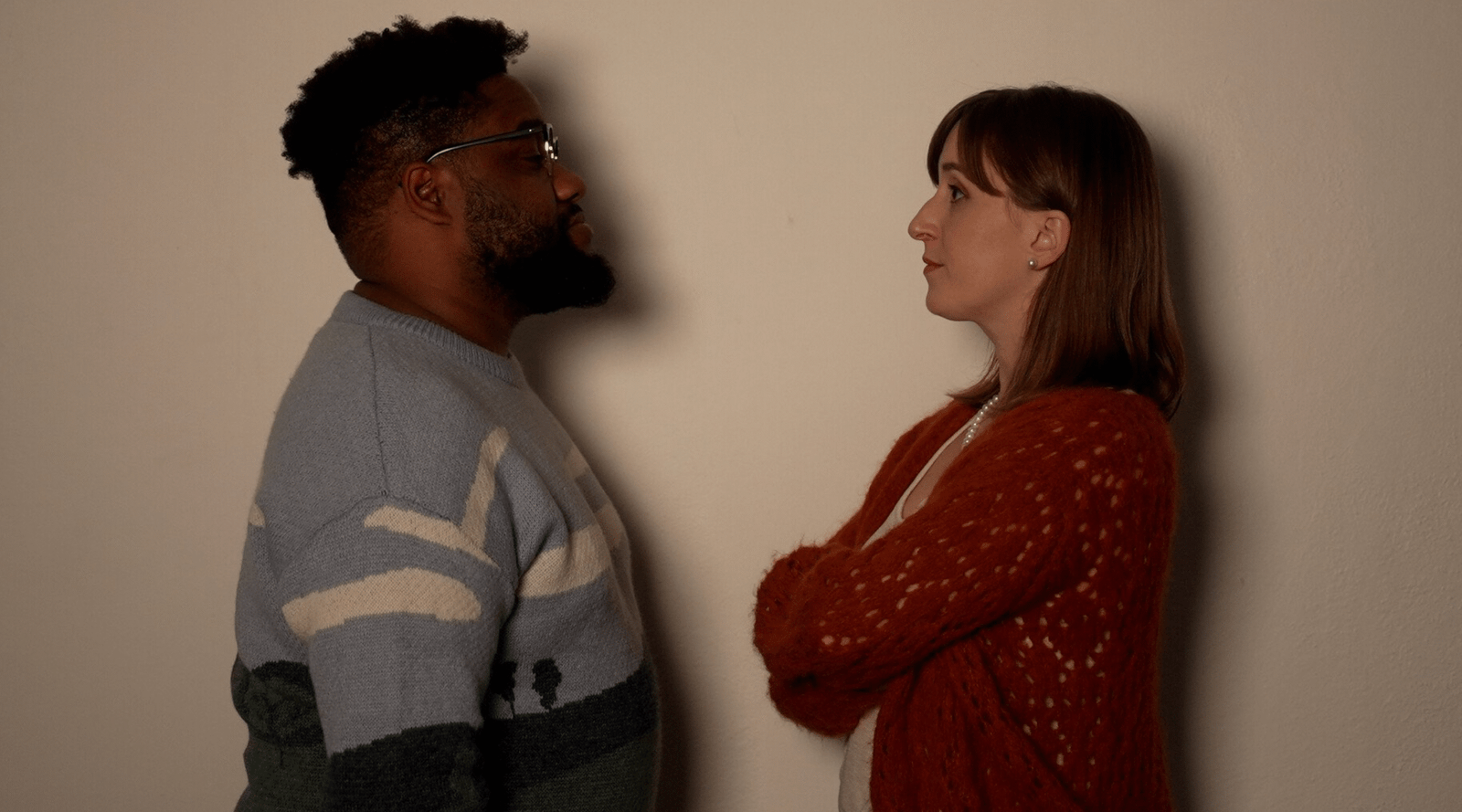Related: Celebrity Splits of 2024: Stars Who Have Called It Quits This Year
Advertisement
Anderson .Paak, Jae Lin, Soul Rasheed. Steve Granitz/WireImage
Anderson .Paak filed for divorce from wife Jaylyn Chang on Friday, January 12, after 13 years of marriage.
The Silk Sonic musician (real name Brandon Paak Anderson) cited “irreconcilable differences” as the reason he and Chang (sometimes spelled Jae Lin Chang, her legal name is Heyyoun Chang) broke up, according to court documents obtained by Us Weekly.
Paak and Chang share two sons, Soul Rasheed, 13, and Shine Tariq, 6, and he is asking to share legal and physical custody of sons.
He requested to terminate the court’s ability to award himself or Chang any spousal support.
Paak did not note their date of separation, but the docs reveal that the couple tied the knot on November 23, 2010. The musician has been very private and didn’t correct reports that he married in 2011.
This is Paak’s second marriage. In a a July 2016 interview with The Breakfast Club, the performer noted that he was married for the first time at age 21 for two years. He referred to Chang as the “only wife that matters”.
MOVI Inc.
Paak said Chang immigrated from Korea with no knowledge of English and they met at the Musicians Institute in Hollywood. Before he found success as a musician, he was hired as a band member for a gospel class, which is where he met Chang.
“These things that I’ve gotten — like, my family, my wife, my son — have all been byproducts or whatever of my passion for music,” Paak explained while on The Breakfast Club.
He added that as soon as he found financial success, he gifted Chang a Chanel bag to celebrate.
Chang is also the reason Paak has learned more about his Korean heritage, he told Hypebeast in an April 2023 interview.
“My mom is half Black and half Korean, so I’m a quarter Korean, but I never knew much about my Korean culture until when I was married to my wife, who is fully Korean,” Paak explained. “My kids pretty much see themselves as Korean. Raising [biracial] kids, there’s a dynamic of ‘all right, you got this side and you got this side’ and teaching ‘em about both.”
Chang was described as a singer in a gospel rock band in Paak’s March 2021 interview with Esquire. He also noted that they raise their sons in a bilingual household, speaking both Korean and English.
Anderson .Paak filed for divorce from wife Jaylyn Chang on Friday, January 12, after 13 years of marriage. The Silk Sonic musician (real name Brandon Paak Anderson) cited “irreconcilable differences” as the reason he and Chang (sometimes spelled Jae Lin Chang, her legal name is Heyyoun Chang) broke up, according to court documents obtained by
Us Weekly Read More

North West, the 12-year-old daughter of Kim Kardashian and Kanye West, is under the spotlight once again — this time for showing off a collection of tattoos that set social media on fire. In recent photos and videos circulating online, North was seen with several arm designs, including tributes to her parents and fashion-inspired symbols. While fans were quick to admire her bold style, not everyone was impressed.

Critics argue that the tattoos — even though they appear to be temporary — are another example of celebrity children being pushed into adult trends too early. Comments flooded social media platforms, with some users saying Kim allows North too much freedom, while others defended the reality star’s parenting approach, praising her for letting her daughter explore creativity and self-expression.
“Kids should be kids,” one commenter wrote, reflecting a broader sentiment among parents online. Meanwhile, supporters pointed out that North comes from one of the most fashion-forward families in the world and that experimenting with style is part of her upbringing.
Kim Kardashian has not directly addressed the controversy, but she has often spoken about encouraging her children to express themselves authentically. North, already known for her viral TikTok appearances and fashion collaborations, seems unfazed by the criticism.
At just 12, North West continues to blur the lines between youth culture and celebrity identity — reminding the public that in the Kardashian–West household, individuality isn’t just allowed, it’s celebrated.

Jennifer Lopez is once again at the center of a media storm — but this time, it’s her first husband, Ojani Noa, turning up the heat. Following Lopez’s recent Howard Stern Show interview, in which she claimed she has “never been truly loved” by any of her exes, Noa has publicly accused the superstar of cheating and playing the victim.
In the viral Instagram post that has now spread across major outlets like TMZ and New York Post, Noa didn’t hold back.
“Stop putting us down. Stop putting me down with your victim card,” he wrote. “The problem is not us. Not me. The problem is you. You’re the one who couldn’t keep it in your pants.”
Noa and Lopez were married briefly from 1997 to 1998, before her rise to Hollywood superstardom. In his explosive statement, he accused her of being unfaithful during their marriage, claiming she prioritized fame over their relationship.
“You have been loved a few times. You’ve been married four times. And have had countless relationships in between,” Noa continued. “You decided to lie, to cheat on me. You begged me to keep the marriage intact to avoid bad press.”
Noa described himself as “faithful, honest, and loving,” saying he uprooted his life and career to support Lopez at the beginning of her entertainment journey. “I left my family, my friends, everything behind for you,” he wrote, “but once fame came calling, you left me behind.”
As of now, Jennifer Lopez has not publicly responded to Noa’s allegations. During her Howard Stern interview, the singer and actress claimed her former partners “weren’t capable” of loving her, saying, “It’s not that I’m not lovable… it’s that they’re not capable.”
Her remarks were widely interpreted as referencing all of her ex-husbands — including Marc Anthony, Cris Judd, and Ben Affleck — but it was Noa who reacted first and most forcefully. His comments have ignited widespread debate online, with many questioning whether Lopez’s honesty came at the expense of others’ reputations.
The online reaction has been intense, with social media users split between defending Lopez’s right to share her truth and blasting her for allegedly rewriting history. Meanwhile, entertainment analysts note that the controversy adds to an increasingly turbulent year for the singer, following canceled tours, underperforming films, and ongoing scrutiny over her marriage to Affleck.
This latest backlash has also reignited conversations about Lopez’s highly publicized romantic history. As tabloids and fans speculate whether more exes might respond, the situation underscores an old truth in celebrity culture — that every candid confession comes with consequences.
For now, Jennifer Lopez remains silent. But in the court of public opinion, the debate about who’s really at fault in her love story is only just beginning.

By all appearances, Hollywood is a dream factory — a place where charisma, talent, and luck collide to create stars. But behind the camera lights and red carpets lies a conversation few inside the industry speak openly about: the spiritual and moral price of ambition.

For actor Omar Gooding, the idea of “selling your soul” in Hollywood isn’t a metaphor — it’s a moral process that begins with tiny compromises. In an October 2025 interview, Gooding explained that no one in Hollywood makes a literal deal with the devil. Instead, it’s the quiet yeses, the moments when comfort overrides conviction, that mark the beginning of the trade. “They don’t say, ‘Take this or you’ll never make it,’” he said. “They just put it in front of you. You choose.”
Those choices, he argues, create a pattern. Once you show that you’ll accept something you once resisted, the industry notices. “Hollywood knows who it can get away with what,” Gooding said. “One thing always leads to another.” The phrase “selling your soul,” in this context, means losing your say — doing what you’re told rather than what you believe in.
That moral tension has long shadowed the arts. Comedians like Dave Chappelle, who famously walked away from millions to preserve his creative integrity, often serve as examples of where conviction and career collide. In resurfaced interviews, Chappelle hinted that he felt manipulated and silenced by powerful figures who sought control of his narrative, warning that “they’re trying to convince me I’m insane.”
This isn’t just about conspiracy — it’s about agency. Hollywood runs on perception. Performers are rewarded for being agreeable, moldable, entertaining. Those who question the machine or refuse the script risk exile, while those who conform are elevated — sometimes beyond what they can handle.
“We see the ‘collections’ all the time,” Gooding explained. “When the bill comes due, you can tell. They made that deal long ago.”

But the story doesn’t end in darkness. Gooding also emphasizes that in today’s entertainment landscape, artists have more control than ever. With streaming, social media, and creator‑driven platforms, performers don’t have to “play the game” to be seen. Independent creators can build their own stages, speak their own truths, and reach millions without trading authenticity for access.
Still, the temptation remains — recognition, validation, quick success. And every generation of artists must answer the same question: What are you willing to do for fame?
As Gooding put it, “You just make the best choices you can. Because once it’s gone — your name, your peace, your soul — there’s no buying it back.”

Executive Producer Debut: How Celia Carver Created Festival Hit ‘Afterparty’


Why Are Influencers Getting $7K to Post About Israel?


Why Did Gen Z QUIT Drinking Alcohol?


How AI Is Forcing Everyone Into the Entrepreneur Game


Keith Urban and Nicole Kidman Split After 20 Years as Actress Files for Divorce


Tilly Norwood’s Rise Stirs Controversy


How a Government Shutdown Could Hit Your Life and Wallet


Why Did Dakarai Trash His NBA Letters?